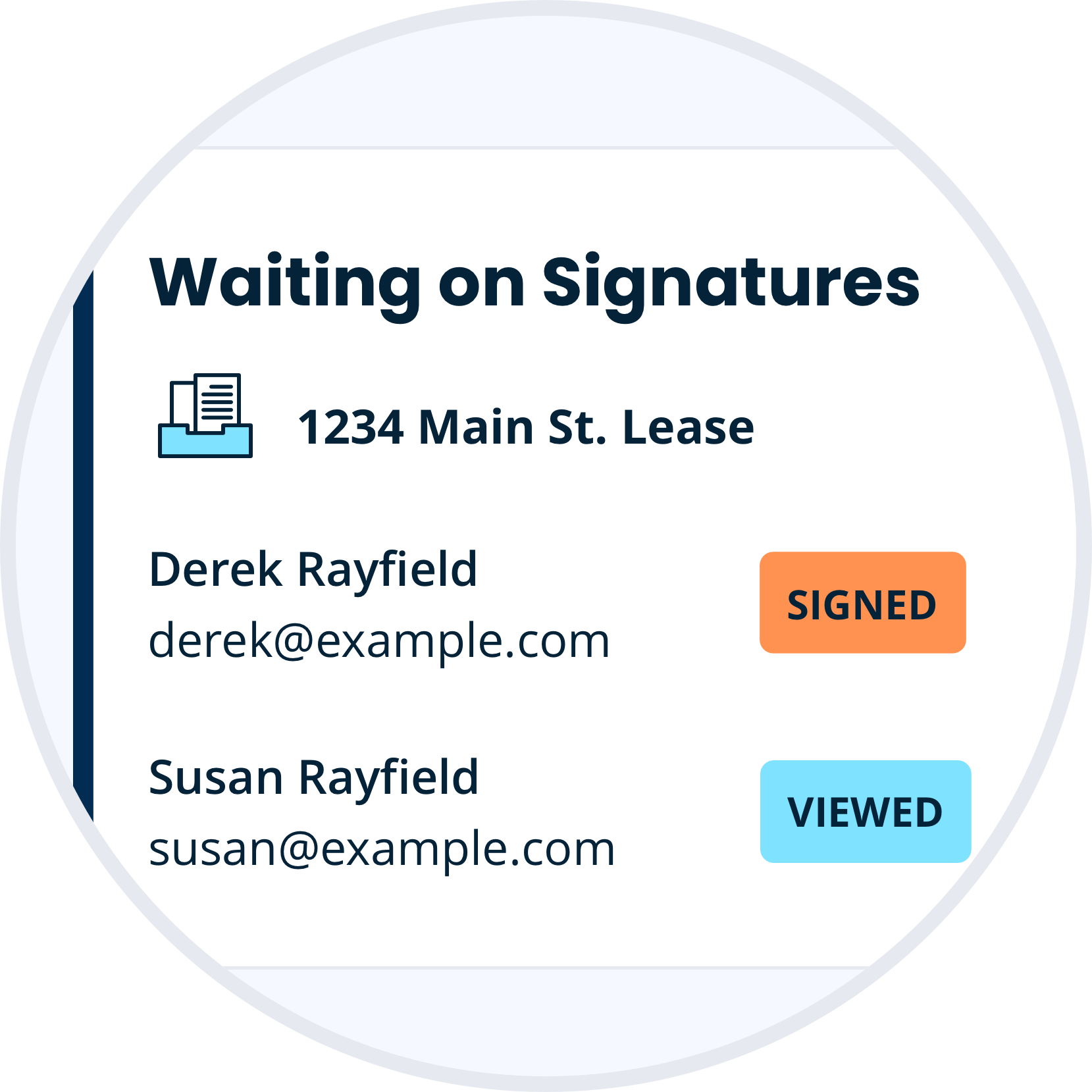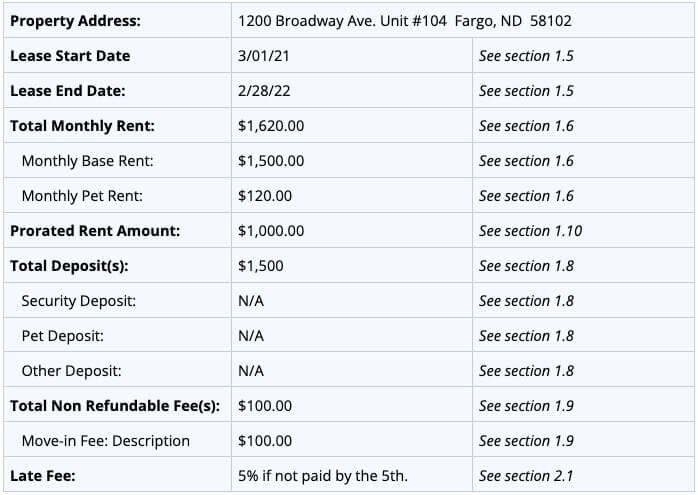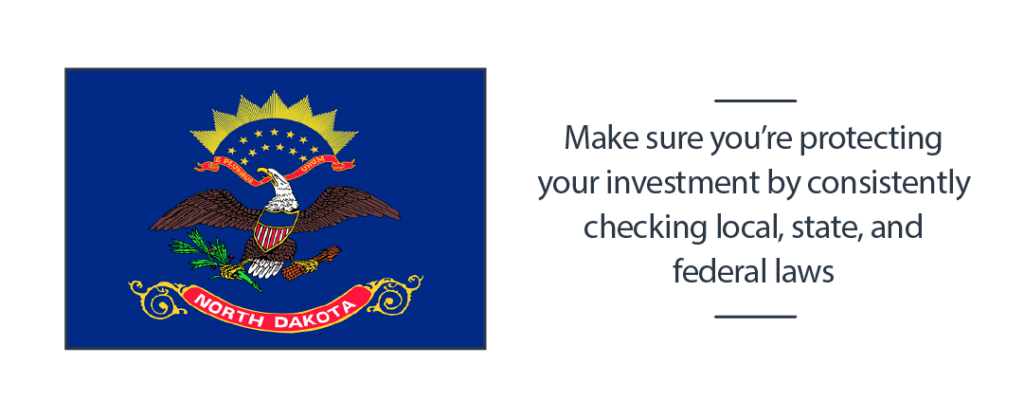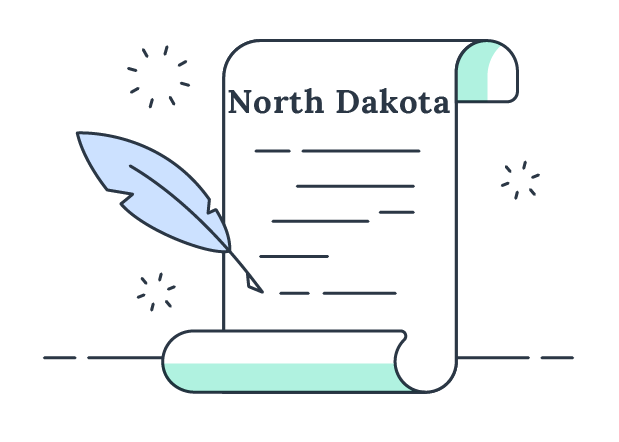North Dakota is a state that has something for everyone. From the endless sky to bustling city life, North Dakota boasts a high quality of life. It is also a great state to invest in rental property. North Dakota is an extremely tax-friendly state, and with people moving out of the big cities to more rural communities, finding tenants won’t pose a problem.
Laws that impact the rental market, landlords, and tenants are constantly being decided in states. Make sure you know what’s on your ballot – find North Dakota voting information.

North Dakota Renters’ Rights and Landlord Responsibilities
- Security deposit maximum is equivalent to one month’s rent
- Must give a 30-day notice before raising rent
- Must give reasonable notice before entering
- Repair and deduct law is in place
When it comes to North Dakota rental laws, there are a few specifics landlords need to know:
- Repair and Deduct – In North Dakota, if a repair is needed, the landlord must make the repair within a reasonable amount of time after being notified by the tenant. The definition of “reasonable” depends on what the repair is. If the landlord fails to make the repairs, the tenant may pay for the fix and deduct the price from their next rent payment.
- Raising Rent – Landlords may raise rent however much and often they choose, but they must give the tenant a 30-day notice before doing so.
- Notice of Entry – North Dakota law states a landlord must provide reasonable notice before entering a rental property. However, the law doesn’t specify what “reasonable” entails.
- Security Deposit – North Dakota has a limit on how much a landlord may charge for a security deposit which is no more than one month’s rent. The deposit must be returned within 30 days.
North Dakota Landlords’ Rights and Tenant Responsibilities
- No limit on late fees
- Victims of domestic violence may terminate their lease
- Tenants must claim abandoned property within 28 days
- Tenants must maintain the property
Criminal Background Check
- HUD (Federal) laws do not classify criminal backgrounds as a protected class, but making a decision to rent based off a criminal background alone could lead to a discrimination charge as it impacts certain protected groups of people disproportionately.
- However, if the criminal background check revealed a crime for the manufacture and distribution of drugs, homicide and/or stalking, denying the application is allowed.
- Landlords should have a consistent and equal policy or procedure in place to follow regarding criminal background checks so as not to discriminate against one class of people over another.
- HUD states that a landlord cannot ask about arrest records, only convictions, as innocent people are commonly arrested though the situation may not have resulted in a conviction.
- Some municipalities may have written their own laws expanding onto what you can and cannot ask regarding criminal backgrounds during the tenant screening process.
Security Deposit
- Security deposits must be kept in an FDIC-insured checking or savings account that earns interest.
- Earned interest must be returned to the tenant unless the lease term is 9 months or shorter.
- The maximum amount that a landlord can charge for a security deposit is one month’s rent, but landlords can collect two months’ rent from tenants with a felony or judgment against them.
Discrimination
North Dakota adds further legal protections for marital status, receipt of public assistance, or status as a domestic abuse victim.
Build a North Dakota lease agreement in less than 15 minutes.
North Dakota Lease Agreement Sample
There are three sections to a residential lease agreement. The first section outlines the custom details of the contract, such as who’s involved and for what address. Here’s an example North Dakota lease agreement listing details found in Section 1:
North Dakota Landlord-Tenant Law FAQ
Below are answers to some of the most commonly-asked questions when it comes to landlord-tenant laws in North Dakota:
Can You Withhold Rent in North Dakota?
In North Dakota, you cannot withhold rent for any reason. If a landlord fails to make repairs, the tenant does have the right to repair and deduct. This is where the tenant will pay for repairs and deduct that cost from their next rent payment.
How Long Does it Take to Evict a Tenant in North Dakota?
The eviction process in North Dakota typically takes anywhere from two to eight weeks.
Is North Dakota a Landlord-Friendly State?
North Dakota is generally a landlord-friendly state where landlords can charge whatever they deem reasonable for rent and security deposits. Make sure to always check local area laws along with state laws to ensure you’re fully educated.
What is the Eviction Process in North Dakota?
The first step in the eviction process is to serve the tenant with a notice that explains how they violated the lease. After this notice is served, the tenant has three days to either cure their violation or move out. If they do neither, then the landlord can go to the court to file for an eviction. After the case is filed, the tenant will receive a copy and will be given a date to appear in court. This hearing is where the judge will hear the landlord’s and tenant’s side of the case and then decide whether or not the tenant will be evicted.
How Much Notice Does a Landlord Have to Give a Tenant to Move Out in North Dakota?
Tenants are entitled to a 30-day notice from the landlord before needing to move out.
Due Diligence and North Dakota Rental Laws
TurboTenant has utilized many municipal sources along with official state statutes in order to compile this information to the best of our ability. However, local laws are always in flux, and landlords and tenants alike should be sure to do their due diligence and consult legal help when it’s needed. We hope the following list can serve as a valuable resource and allow you to succeed as a landlord or tenant in North Dakota. Be sure to take proper precautions when it comes to finding the top candidates for your unit by utilizing our online rental application and tenant screening services.
Disclaimer: TurboTenant, Inc does not provide legal advice. This material has been prepared for informational purposes only. All users are advised to check all applicable local, state, and federal laws and consult legal counsel should questions arise.

Unlimited Everything.
Create a single North Dakota lease agreement, or subscribe and receive unlimited lease agreements, landlord forms pack, and e-signs for a simple annual fee. Be confident with all the legal forms and tools you need as a professional landlord.
Discover Our Unlimited PlanNorth Dakota Landlord-Tenant Law Resources
- CHAPTER 47-16 LEASING OF REAL PROPERTY
- CHAPTER 47-32 EVICTION
- Tenant Rights and Responsibilities – Office of Attorney General
- Landlord-Tenant Law – Legal Services of North Dakota
North Dakota Fair Housing Resources
- Tenant Rights, Laws, and Protections: North Dakota – HUD
- North Dakota – HUD
- Understanding Housing Discrimination Laws in North Dakota
- Fair Housing
Other State Resources
North Dakota Associations
North Dakota City-Specific Housing Resources
Fargo
Grand Forks
- Inspections | Building Safety | City of Grand Forks, ND
- Permits & Applications | City of Grand Forks, ND
- FAQs | City of Grand Forks, ND
- Fair Housing – City of Grand Forks
- Tenant Handbook – The Grand Forks Housing Authority
- The Grand Forks Area Association of REALTORS®
Bismarck
Minot
West Fargo
Williston
Federal Fair Housing Resources







